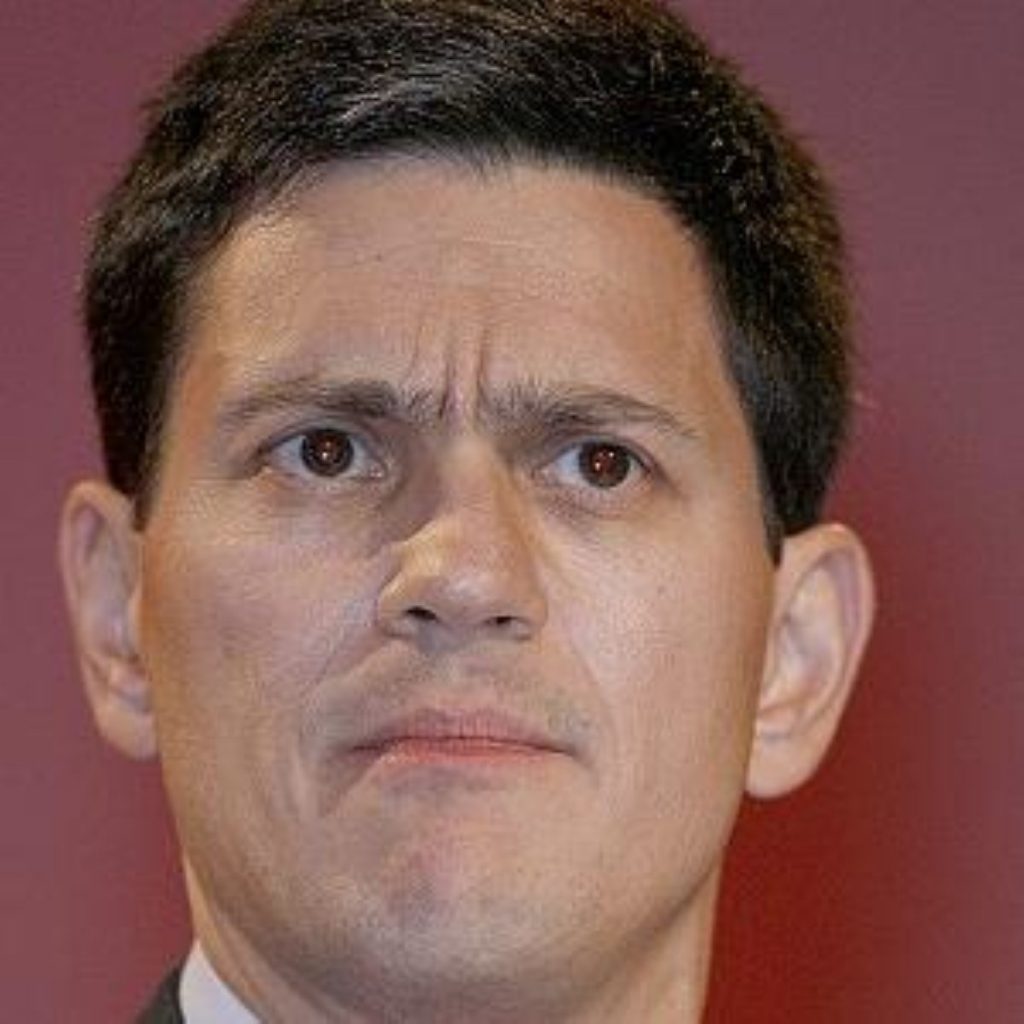Analysis: Miliband speech
David Miliband walked on stage today and did precisely what he needed to do.
He praised Gordon Brown twice, but it was in his body language, and his tone, that he communicated his message: I’m loyal to the Labour party first and foremost.
It is, of course, entirely sensible. Having laid out his stall with the infamous Guardian article in June, he now had to ensure he wasn’t associated with the Labour plotters so resented by many in the party, and in the country at large, for their self-absorption during an economic crisis. If the Guardian article said: ‘Look at what a good leader I’d be’, then today’s speech added: ‘Look at what a good Labour man I am.’ Mr Miliband, he was keen to point out, is not the type to fling dirt at a Labour prime minister while the economy crashes and the Tories soar.
His first reference concerned cluster munitions, nasty little bomblets which often lie unexploded until a child – it’s very often a child – treads on it. During talks on their legal status, Mr Miliband said, “the skilful intervention of one man broke the deadlock: our leader made the difference, Gordon Brown.”


The second reference was far more gushing. Speaking about the increase in aid over the last 11 years of Labour government, Mr Miliband turned away from the audience and towards the prime minister sitting by a podium desk behind him. Frankly, it looked as if he was about to regale him with love songs.
The speech reads: “That’s the difference Gordon Brown makes. He has transformed the debate about international development in Britain.” But that wasn’t quite how he said it. He prolonged the moment, and elevated his tone, and turned it into a minor piece of conference theatre – a simple, crystal clear message of loyalty. Gordon Brown could not have asked for anything more.
And yet, on stage after the speech was done, as delegates were giving the foreign secretary a standing ovation, the body language between the two remained excruciating. Both forced smiles and endlessly patted each other on the back. Mr Miliband oscillated between smiling at Mr Brown and looking out at the audience and bowing slightly, in a rather odd manner. But for one moment, the same steely gaze came over his face that he had during the speech.
During a speech, steely gazes communicate the message of taking things seriously and getting down to business. While receiving a standing ovation it comes across entirely differently. He seemed like Napoleon surveying his fleet. With Mr Brown looking haggard behind him, no amount of theatre can hide the reality of their relationship. Miliband will play no part in overthrowing him, but he will almost certainly replace him when it happens.
It’s easy to see why many Labour members would yearn for a man like Mr Miliband when saddled with a leader like Mr Brown, but they should remind themselves of relativity. Next to Mr Brown, David Miliband shines. But he is no Tony Blair. Yes, his smiles seem unforced and natural. Yes, he gesticulates logically, not like a public relations executive backstage quickly reminded him to occasionally move his hands. Yes, he is young, with a full set of hair, and somehow likeable. But as a politician he remains unspectacular.
He is an above average orator, but not inspiring. He has no ideas or soundbites that stick in the memory. And most importantly of all, he would carry with him the weight of Labour disenchantment currently borne by the former chancellor.
Mr Miliband did exactly what he set out to do. In the summer, he made his ambition clear. Today, he affirmed his loyalty to party over loyalty to his career for all to see. Next, he will bide his time, and after that – with Alan Johnson having cleared the way – he will almost certainly become party leader. But in all the excitement Labour members should not blind themselves to his capabilities. His talents still don’t live up to his press.
Ian Dunt









